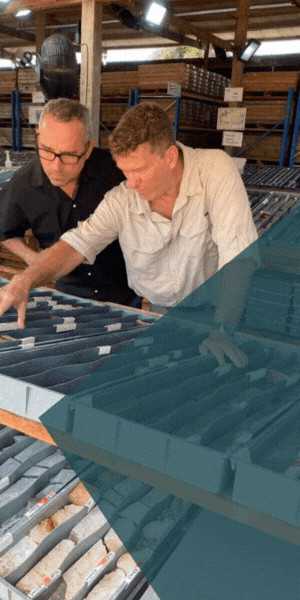Mexican Mining Reforms Could Present Challenges for Investment

New Mexican mining reforms restrict concessions and exploration, especially hurting junior miners, though existing major producers are more insulated near-term. Selectivity is key for investors.
- Mexico is a major global producer of silver, lead, zinc, gold and copper. Mining is important to its economy.
- President AMLO implemented new mining reforms that restrict new mining concessions and make it harder to explore and operate mines.
- The reforms negatively impact exploration companies the most, especially junior miners, by restricting new concessions and requiring partnerships with locals.
- Existing producers are less impacted as their concessions are grandfathered in, but new projects face hurdles. Legal challenges are in progress.
- Investment in Mexican mining is at risk due to the reforms, especially grassroots exploration which could see expenditures drop further.
Mexico has a rich mining history and is a major global producer of silver, lead, zinc, gold and copper. Mining is an important sector for Mexico. It represents 4% of total exports, worth $19 billion in 2021. It creates around 400,000 jobs with key mining states being Sonora, Zacatecas, Chihuahua, Durango and Guerrero. However, new mining reforms instituted under President Andrés Manuel López Obrador (AMLO) and his Morena party threaten future investment in the sector, especially for junior explorers.
In early May 2023, AMLO’s party rushed through legislation to implement restrictive new mining reforms focused on controlling the use of public lands and water resources. The goals are to ensure proper compensation for mining activities, require bonding and plans to mitigate ecological risks, reduce land speculation, and increase state control. However, these reforms negatively impact mining exploration and operation, with the greatest effects on grassroots junior explorers.
AMLO has halted new concession grants since taking office in 2018. The new mining law restricts concessions to 30 years, down from 50 years, with a possible 25-year renewal. Stricter conditions for concessions include mandated closure, waste management and post-closure plans. Concessions can be canceled for lack of approved plans or unpaid taxes. Priority for mining concessions is lost, and none will be granted near protected areas.
The transfer of concession ownership now requires government approval, impacting financing. Restrictions on changing minerals mined impacts project flexibility. New bureaucratic hurdles and local consultation rules further complicate mining. The reforms’ effects are still unclear as details remain unfinalized, prompting legal challenges.
Overall Mexico’s risk profile for mining has increased under AMLO, with legal, operational, political and tax risks now elevated compared to regional peers. Mexico ranks poorly on global mining investment attractiveness indices. This threatens future investment, as about 70% of foreign capital in Mexican mining comes from Canada.
Impacts On Exploration and Junior Miners
The new reforms disproportionately impact mining exploration and junior companies focused on early-stage grassroots projects. Exploration spending in Mexico has already dropped nearly 50% from its 2012 peak of $1.2 billion to $633 million in 2022. The reforms could see exploration shrink further if new concessions become difficult to obtain.
A key problem is that new exploration projects must partner with a Mexican state geological survey for up to five years before getting a concession. The joint venture terms are unclear but may require handing over significant ownership. Worse, after exploration and discovery, the concession could still go to open auction. These rules create too much risk and uncertainty for early-stage junior explorers who rely on attracting investors to fund initial exploration. Their business model depends on securing ownership of highly prospective ground. The joint venture and auction requirements make this nearly impossible now in Mexico.
Additionally, new bonding requirements prior to exploration add costs, as do mandated local partnerships. With concessions harder to obtain and operate, grassroots exploration in Mexico is set to decline markedly, especially from crucial junior miners. This will negatively impact future discoveries and mine development.
Challenges for Existing Producers and Mines
Leading Mexican mining companies like Grupo Mexico, Fresnillo, Peñoles and others with existing operations and concessions will be less affected. Their concessions are grandfathered in under the old rules. However, challenges remain.
Grupo Mexico’s attempt to obtain adjacent concessions around a 19 million ounce gold deposit was recently rejected unexpectedly under the new reforms. Radius Gold encountered a similar issue, now suing after Chihuahua State approved concessions but federal authorities rejected them. Expect more such disputes between companies and national/local governments.
Producers must also now implement mandated closure and post-closure plans. While existing mines are safe, any expansions or new projects face issues obtaining concessions, permits and priority access to land use. Developing major new mines in Mexico will be very difficult given the new laws.
M&A activity may also be impacted if ownership transfer restrictions prove onerous. And while major existing producers seem confident overall, their optimism comes with significant caution. Fresnillo stated the reforms do not affect current operations, but also see investment risks from regulatory uncertainty.
Producers Insulated Near-Term, Juniors Face Headwinds
For investors, the thesis depends on the type of mining company:
- Major Mexican producers will be less impacted near-term as their key assets are protected under old rules. However, new developments will be challenging. Producers reliant on Mexico should be approached cautiously amid the policy uncertainty.
- Juniors face significant headwinds, especially grassroots explorers focused on new concessions. Existing plays could progress but political risk is now heightened. Investors may want to avoid new junior deals in Mexico until the rules become clearer.
- For diversified companies, Mexican assets will see declining investment. Production could be maintained but growth will shift to assets in other countries.
Opportunities remain in Mexican mining, but require selectivity:
- Target producers insulated by current operations, but be wary of reliance on new Mexican projects for growth.
- Some juniors with quality existing properties can still create value, but need strong community and government relations.
- Seek companies benefiting from higher metal prices, as margins buffer Mexican policy impacts.
While the reforms hurt Mexican mining competitiveness, the country's resource potential is vast. Investors must be selective amid challenging policies, focusing on high-grade, low-cost operations generating solid cash flow from long-life assets. But overall, Mexico's attractiveness for mining investment has been severely impacted.
Analyst's Notes




Subscribe to Our Channel
Stay Informed

































